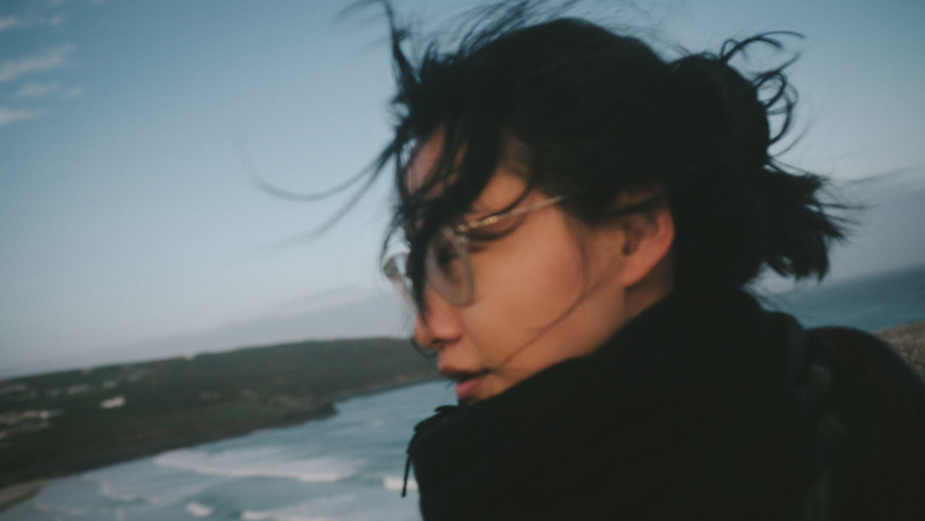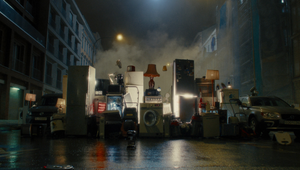
The Directors: Luo Jian

Luo Jian is a director and screenwriter born in the world’s furthest place from the sea: the Gobi Desert, where Asia and Europe meet in the West of the East and the East of the West, just like her films. A modern filmmaker with an eye on the future, Jian is fascinated by geography and history and has a skill for weaving a layer of magic into both true and invented stories.
LBB> For you, what is the most important working relationship for a director to have with another person in making an ad, and why?
Jian> For me, making ads is no different than making films. The tools of expression used by the creatives are all moving images, and the goal is always to create something that resonates with people. Apart from the obvious core creative staff and their corresponding collaborative relationships, I think the most important, but often overlooked, relationship is the one between the director and the actors.
Ang Lee once said that casting accounts for 85% of a film's success. Usually, an important indicator of the success of a working relationship is the professionalism of both parties. But the relationship between a director and an actor is different. The director and the actor need to have a heart-to-heart. This trust will radiate out and give the film an 'intimacy.' When we have intimacy, the audience will trust what you are trying to sell - be it a story, a product, or a slogan, a philosophy.
LBB> What are your thoughts on opening up the production world to a more diverse pool of talent? Are you open to mentoring and apprenticeships on set?
Jian> I prioritise viewing the portfolios of female creatives; when shooting in China, I try to hire my folks from Xinjiang (a region far from the Chinese ad and film industry); when writing a script, I fight for shooting in second or third tier cities other than Shanghai and Beijing.
When I prioritise viewing the portfolios of female creatives and hiring people of colour, these actions don’t come from a 'woke' awareness, but rather an instinct: whether in the US, UK or China, I always feel like an outsider, unable to fully integrate into the collective. Naturally, I’m drawn to other outsiders like me.
LBB> What’s the craziest problem you’ve come across in the course of a production - and how did you solve it?
Jian> Although China is my homeland, I didn't shoot in China for the first time until 2018. It was an independent film shoot, small crew, and between setups I sat on an empty pelican case for a rest. There is a position in China called an Equipment Follower, someone sent by the rental company to watch over the equipment on set, think of them as equipment insurance in human form.
When I sat down, the Equipment Follower strongly requested that I return to the director's chair in the director's village. I explained that I was used to being as close to the DOP and actors as possible. He did not accept this answer and was getting more upset. I thought he was taking his job very seriously and didn’t want me to damage the grip case. But a local crew member explained to me privately that women can't sit on equipment cases in China, because it would be bad omen and the focus of the lens would get soft. I was upset by this and sat on the grip case every day for the next five days of the shoot.
LBB> What misconception about you or your work do you most often encounter and why is it wrong?
Jian> Many misunderstandings are not 'wrong', but one-sided. The feeling of being restricted, concluded and labelled is more unpleasant than not being understood at all. People say that my work is "delicate and sensitive, very female, with an emotional touch." “Better at storytelling and character building than shooting products." And when I try something else, "surprising! A sense of masculinity and power.” “Doesn’t feel like a female director, for lack of a better term." Where is the border between advertising and film? Don’t women have adrenaline? But in fact, I don't really care about these comments. They say more about those who give them and not me.
LBB> What elements of a script sets one apart from the other and what sort of scripts get you excited to shoot them?
Jian> When I read a story, there are four channels running at the same time. The literary channel receives the text, writing style, wordplay etc., the image channel goes through the visuals frame by frame. The third channel is the heart, which analyses emotions in the story in an attempt to find resonance. The fourth channel has no sense of time or space, and is mainly composed of past life experiences and movie-viewing experiences. It can be called the filmmaker's intuitive channel. This channel is often ahead of the other channels, making cynical predictions, searching for clichéd narrative gimmicks. In the process of reading a script, if the 4th channel never sounds an alarm, it will be the script I want to try to shoot.
LBB> How do you strike the balance between being open/collaborative with the agency and brand client while also protecting the idea?
Jian> A script has various levels of details and conflicts, and the director has to 'choose the battlefield', stand firm for the core dramatisation while remaining flexible on the add-ons. Whatever changes are being made, they need to be seen as the result of a discussion and the director should never take full credit for them (even though you do take full responsibilities for them). If you can always have a united front among your core creative team, brand and agency, you can protect your idea to the greatest extent possible.
LBB> How do you feel the pandemic is going to influence the way you work in the long term? Have you picked up new habits that you feel will stick around for a long time?
Jian? The pandemic made me realise that it doesn't count as family-career balance if I have to wait until I don't have work to spend time with family. Because balance means that the two choices are equal. It's 'me' who chooses when to work and when to live, not the 'work free time' that determines my pace of life.
Before the pandemic, I thought the coolest thing in the world was to live in places like New York or London while doing a job I loved. After the pandemic, I think the coolest thing is to be in my hometown - a third-tier Chinese city with no Starbucks and the poorly-signalled Gobi desert - while still working on things I believe in.
LBB> Your work is now presented in so many formats - to what extent do you keep each in mind while you’re working (and, equally, to what degree is it possible to do so)?
Jian> It depends on what stage of work I’m in. When I’m at the creative stage or the shooting stage, I try not to think about these questions and just focus on the story, the performances. What kind of audience is watching what format of my work on what platform - these questions are important, but focusing too much on them will pull the director away from the story and from the present. So so many things need to be considered during filmmaking, so it's very lucky to be the director, because directors never fight alone.















